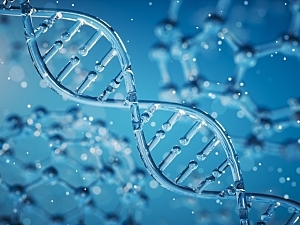Hemolytic disease of the fetus and newborn (HDFN) most commonly occurs when an RhD-negative pregnant person is exposed to antigens from an RhD-positive fetus. For RhD-negative pregnant patients in the U.S., the current standard of care is to administer prophylactic Rho(D) immune globulin. However, that intervention is unnecessary for the approximately 40% of RhD-negative pregnant individuals carrying an RhD-negative fetus.
In a number of European countries, the standard of care is noninvasive prenatal testing (NIPT) of cell-free DNA (cfDNA) to determine fetal antigen genotype and predict fetal antigen phenotype. That approach pinpoints who needs Rho(D) immune globulin and guides the management of alloimmunized pregnant patients.
However, the European assays are unable to predict fetal RhD status in the presence of non-RHD gene deletion variants, including RHDΨ, which are more common in non-Europeans. Now, a company called BillionToOne (Menlo Park, CA) has developed and validated the UNITY Fetal Antigen NIPT assay for the detection of RhD and other red blood cell antigens in the ethnically-diverse U.S. population.
Kathryn J. Gray, MD, PhD, formerly a faculty member in maternal–fetal medicine/clinical genetics in the Department of Obstetrics and Gynecology at Brigham and Women’s Hospital and now at the University of Washington, Brian Alford and Brian Landry of BillionToOne, and colleagues say in Scientific Reports that clinical implementation of the new assay would decrease unnecessary use of Rho(D) immune globulin, as well as significantly improve prevention of RhD alloimmunization and management of alloimmunization in pregnancy.
Background on the Technology
The Unity assay combines the recently developed quantitative counting template (QCT) with genome-wide assessment of polymorphic locations that determine the expected cfDNA fetal molecule count. In this way, it detects the fetal genotypes that encode for the RhD, C, c, E, K, and Fya antigens associated with HDFN.
Quantitative measurements ensure there is sufficient fetal cfDNA present in the sample, significantly reducing the false-negative rate. Moreover, next-generation sequencing enables the detection of fetal antigen status for both common genotypes and non-RHD gene deletion variants. That improves clinical utility and makes testing possible even without a paternal sample.
Validation on Preclinical Samples
As a first step in validating the assay, the researchers mixed DNA pairs that mimicked RhD-negative/RhD-positive and RhD-negative/RhD-negative pregnant person/fetus cfDNA at 12% fetal fraction (n≥93 for each of the six antigens). The NIPT assay was 100% accurate in identifying the fetal RhD antigen genotype. Across the C, c, E, K, and Fya antigens, the assay had a sensitivity of 100% and specificity of 100%.
12 more preclinical samples were made for the six antigens and replicated at a challenging range of fetal fractions, 1.5% to 12%. The assay correctly determined fetal antigen status for all samples with an overall sensitivity of 100% and specificity of 100%.
Clinical Validation: Detection of Fetal Antigens
The researchers next evaluated plasma obtained from pregnant individuals with unknown fetal antigen genotypes and phenotypes:
- 15,329 samples with an average gestational age of 13.9 weeks (range, 10.0–39.0) and an average fetal fraction of 8.8% (range, 1.5%–37.3%)—estimated sensitivity was >99.5% for all antigens
- 53 samples in which the RHDΨ variant was present—The assay correctly identified 14 samples in which the fetus was RhD-negative and 39 RhD-positive samples; with other qualitative NIPT assays these samples would have led to no results or incorrect fetal RhD phenotype prediction
Clinical Validation: Detection of Fetal RhD Status
NIPT was also completed on 53 biobanked plasma samples where the fetal/neonatal antigen phenotype and/or genotype was known (fetal fraction, 1.1%–29.1%). 12 fetuses were correctly identified as RhD-positive and 11 were correctly identified as RhD-negative, for clinical sensitivity of 100% and clinical specificity of 100%.
Cost Reduction Anticipated
Considering the assay’s excellent performance, wide clinical adoption should reduce healthcare costs. The assay will decrease the need for the administration of Rho(D) immune globulin to patients with RhD-negative fetuses and prevent unnecessary fetal monitoring for the estimated 50% to 65% of alloimmunized pregnant individuals who are carrying an antigen-negative fetus. Updated guidance from the Society for Maternal-Fetal Medicine on the use of NIPT for fetal RhD assessment in pregnancy is anticipated soon.
More intangible, but equally important, will be the reduced patient risk, anxiety, and improved ability to accurately detect the fetal red blood cell antigen genotype without paternal genotyping and invasive diagnostics.
